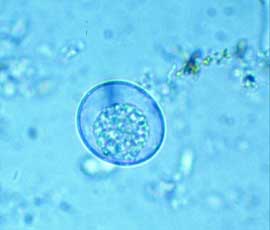Coccidiosis vaccine research progressing well

Tackling coccidiosis is one of the most pressing concerns for food producers in a resource-constrained world, say researchers, and ground-breaking research to develop a vaccine against the parasite is gaining ground in the UK.
A joint project involving Imperial College London, the Institute for Animal Health, the University of Oxford and the Royal Veterinary College recently published research which forms the first step in developing a new type of coccidiosis vaccine. The scientists investigated how the parasite attacks chickens, specifically the proteins which allow it to invade cells in the bird’s intestinal wall. They found by extracting this protein molecule (called MIC3) and injecting other chickens with it, the birds developed some resistance.
“Finding a target protein that could form the basis of a new type of vaccine for coccidiosis has been the holy grail for researchers for some time,” said Prof Stephen Matthews of Imperial College London.
Prof Fiona Tomley of the Royal Veterinary College said the team had done a lot of work on MIC3 and they were confident it was a good candidate to be a part of a future vaccine.
“In the future, putting these types of molecules together, along with a decent delivery system, may well be very promising,” she told Poultry World. “We are really excited about this work.”
With increasing demand for poultrymeat, coupled with the recent banning of one of the world’s most popular anti-coccidial drugs, Roxarsone, by the US Food and Drug Administration, Prof Tomley said there was more interest than ever in vaccine development.
“I think there is a new enthusiasm to really crack this issue. You can do it for viruses – you can make recombinant vaccines. So why can’t you do it for parasites?” she said.
